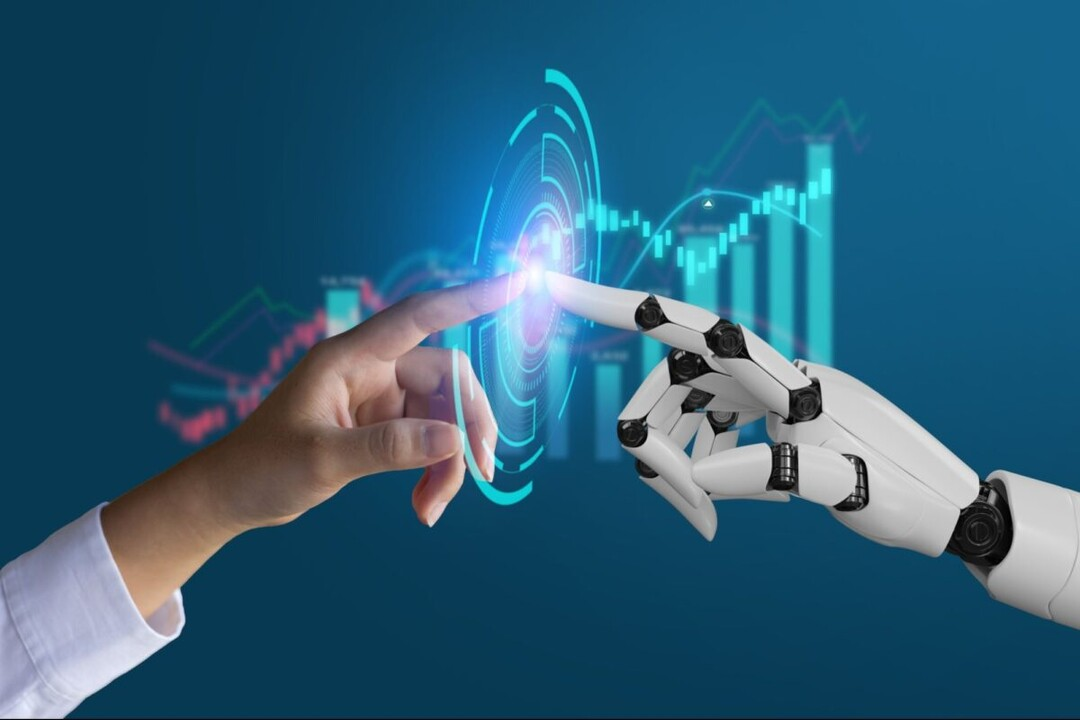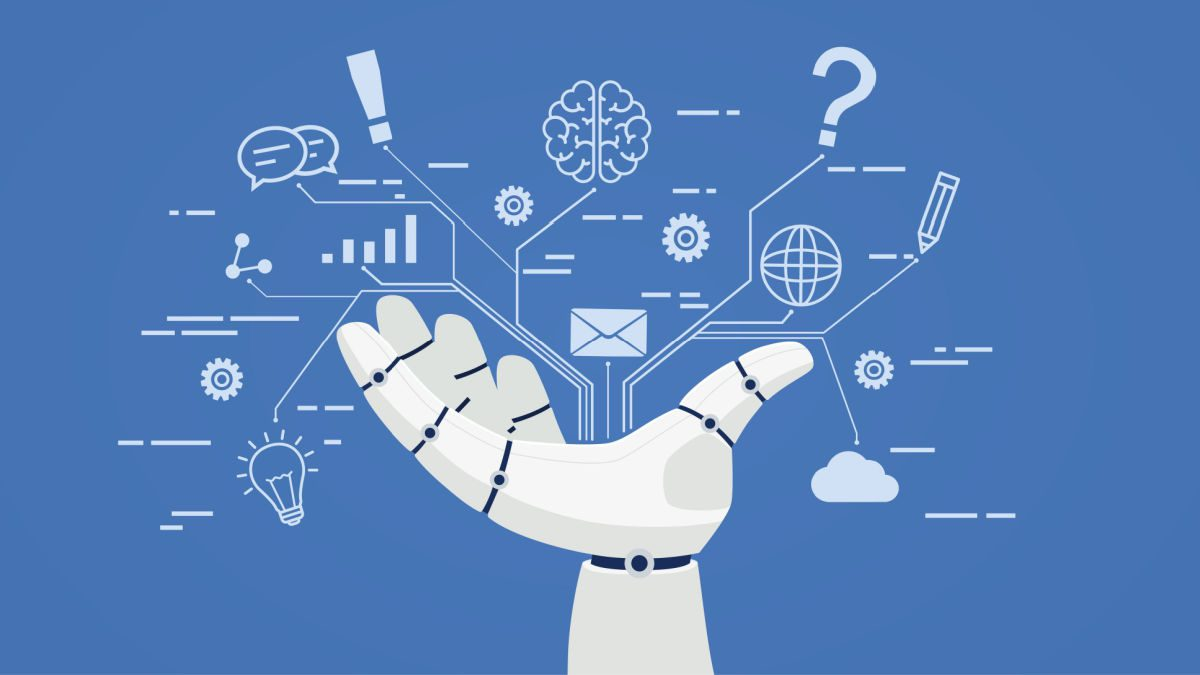In an age of data-driven decision-making, mastering the synergy between AI and marketing is a game-changer. From enhancing data analytics to refining customer targeting, AI revolutionises every facet of your marketing strategy.
In this article, we’ll dissect practical approaches, offering insights into the seamless integration of AI for unprecedented campaign efficiency. Discover how AI-driven innovations redefine engagement, drive conversion rates, and position your brand at the forefront of the rapidly evolving digital landscape.
Keep reading to stay ahead of the curve and discover how to leverage AI effectively, ensuring your marketing efforts resonate in the ever-evolving digital era!
What Is AI Marketing?
In today’s digital landscape, the expansive capabilities of AI are widely acknowledged. However, the specific application of this transformative tool in marketing raises a pertinent question: how are agencies actually harnessing the power of AI?
The integration of Artificial Intelligence technologies in marketing goes beyond mere adoption—it signifies a strategic transformation. Through the adept utilisation of sophisticated algorithms and machine learning capabilities, marketers can glean unparalleled insights from extensive datasets. This, in turn, facilitates a profound understanding of consumer behaviour, preferences, and the ever-evolving trends in the market, heralding a new era of strategic and data-driven marketing practices.
The automation of routine tasks, including data analysis and personalised content creation, not only enhances efficiency but also allows for optimal resource allocation. AI-driven tools excel in hyper-targeted advertising, refining audience segmentation, and elevating overall campaign precision. Beyond these advantages, predictive analytics and sentiment analysis empower marketers to anticipate industry shifts and proactively tailor strategies.
The transformative impact of AI in marketing extends beyond operational enhancements to reshape the customer experience, enabling brands to navigate the complexities of the digital era with agility and insight-driven decision-making.
How Does AI Marketing Work?
AI in marketing operates through the utilisation of advanced algorithms and machine learning models. It initiates with comprehensive data collection, encompassing consumer interactions, online behaviours, and market dynamics. These datasets are then meticulously analysed, enabling the identification of nuanced patterns and predictive trends. Through automated processes, AI refines audience segmentation, tailors personalised content, and optimises ad targeting.
The system continually adapts based on real-time data, ensuring campaigns are dynamic and responsive. This fusion of predictive analytics and automated optimisation allows marketers to precisely target their audience, maximise efficiency, and remain agile in an increasingly competitive marketing landscape.
Why Should You Use AI in Marketing
Embracing AI in marketing is imperative for staying ahead in the competitive digital landscape. Firstly, AI augments efficiency by automating time-consuming tasks, freeing up valuable resources for strategic planning and creativity. Its analytical prowess goes beyond human capacity, extracting actionable insights from vast datasets that would be otherwise overwhelming to process.
By discerning patterns in consumer behaviour, AI facilitates precise targeting, ensuring that marketing efforts are directed towards the most receptive audience segments. Moreover, AI-driven personalisation enhances customer experiences, fostering brand loyalty.
Predictive analytics, another key feature, empowers marketers to anticipate trends and adapt strategies proactively. The result is a dynamic, responsive approach that aligns with rapidly evolving market conditions. If that hasn’t convinced you, AI optimises campaign performance through real-time adjustments, maximising ROI and minimising wastage.
In essence, leveraging AI in marketing is not just about keeping pace with the technological zeitgeist but is a strategic imperative for those aiming to deliver impactful, data-driven campaigns, cultivate customer relationships, and ultimately achieve sustained success in the modern business landscape.
5 Benefits of AI for Marketing Agencies
Precision Targeting
AI equips marketing agencies with the ability to pinpoint and engage with highly specific audience segments. By analysing vast datasets, AI discerns patterns in consumer behaviour, enabling the creation of personalised campaigns tailored to individual preferences. This precision targeting not only enhances the relevance of marketing efforts but also maximises the efficiency of ad spend, ensuring resources are directed towards the most receptive audience.
Automated Personalisation
AI-driven personalisation goes beyond traditional segmentation. It dynamically adapts content and messaging based on real-time data, delivering a personalised experience for each consumer. This level of customisation not only boosts engagement but also fosters stronger connections between brands and their target audience, leading to increased brand loyalty over time.
Predictive Analytics
Leveraging predictive analytics, AI empowers marketing agencies to anticipate future trends and consumer behaviours. By analysing historical data, AI models can forecast potential outcomes, allowing marketers to proactively adjust strategies. This foresight is invaluable for staying ahead of the competition and ensuring campaigns remain relevant and effective in a rapidly changing market landscape.
Operational Efficiency
AI automates repetitive and time-consuming tasks, streamlining operations for marketing agencies. From data analysis to content creation and ad optimization, AI enhances efficiency by handling routine processes. This not only frees up valuable human resources but also allows marketers to focus on high-level strategy development and creativity, driving innovation within the agency.
Real-Time Optimization
One of the key advantages of AI is its ability to make real-time adjustments to marketing campaigns. By continuously analysing performance metrics and consumer interactions, AI optimises ad delivery, targeting, and content in the moment. This dynamic responsiveness ensures that campaigns are always aligned with current market trends, maximising the impact and effectiveness of marketing efforts.
AI in Marketing: 5 Use Case Scenarios
Dynamic Content Personalisation:
AI enables marketing professionals to deliver personalised content dynamically, tailoring messaging and visuals based on individual user preferences and behaviours. This use case ensures that each customer receives a customised experience, enhancing engagement and driving conversions.
Predictive Analytics for Campaign Optimisation:
Marketing teams leverage AI’s predictive analytics to forecast campaign performance and identify potential opportunities. By analysing historical data and trends, AI models can suggest optimal strategies, allowing marketers to proactively refine their campaigns for better outcomes and increased ROI.
Chatbots and Virtual Assistants:
AI-powered chatbots and virtual assistants enhance customer interactions by providing instant, personalised responses to inquiries. These tools can handle routine queries, freeing up human resources for more complex tasks. The result is improved customer satisfaction and increased efficiency in customer support and engagement.
Behavioural Targeting and Retargeting:
AI analyses user behaviour across various digital channels to create detailed profiles. Marketers can then use this information for targeted advertising, ensuring that ads are shown to individuals with specific interests or preferences. Additionally, AI facilitates retargeting efforts by identifying and re-engaging users who have shown interest in a product or service.
Marketing Automation:
AI streamlines marketing workflows through automation, handling tasks such as email marketing, social media posting, and ad campaign management. This use case allows marketers to save time, reduce manual errors, and maintain a consistent online presence. Automation also enables the delivery of timely and relevant content to the right audience, maximising the impact of marketing efforts.
A Five-Step Guide to Incorporating AI into Your Marketing Strategy
Define Clear Objectives:
Begin by establishing clear and measurable objectives for integrating AI into your marketing strategy. Whether the goal is to enhance customer engagement, optimise ad spend, or streamline operations, having well-defined objectives will guide the selection of AI applications and ensure alignment with broader business goals.
Assess Data Readiness:
AI thrives on quality data. Evaluate your existing data infrastructure, ensuring it is robust, clean, and accessible. Identify the key data points relevant to your marketing objectives. This step lays the foundation for accurate insights and effective AI-driven decision-making.
Select the Right AI Tools:
Choose AI tools and platforms that align with your marketing goals. Whether it’s machine learning models for predictive analytics, natural language processing for chatbots, or computer vision for visual content analysis, select tools that best suit your specific needs. Consider factors such as scalability, integration capabilities, and user-friendliness.
Implementation and Integration:
Integrate AI seamlessly into your existing marketing processes. Collaborate with your IT team or external experts to ensure a smooth implementation that aligns with your overall marketing workflow. This may involve customising AI solutions to fit your specific requirements and integrating them with your current technology stack.
Continuous Monitoring and Optimisation:
Post-implementation, regularly monitor the performance of your AI-driven initiatives. Analyse key metrics, gather feedback, and refine strategies based on the insights gained. AI is dynamic, and continuous optimisation is crucial for staying ahead of market trends and ensuring ongoing success.
Let Acuto Help You Leverage The Power of AI For Marketing
At Acuto, we recognise the pivotal role that data plays in fuelling marketing success. Our commitment lies in harnessing the power of AI to elevate your agency’s capabilities.
Our adept team comprises seasoned developers and data engineers with a deep understanding of digital marketing and paid media, facilitating a smooth and effective transition towards achieving your business goals.
We empower marketers to focus on their expertise while we handle the intricacies of implementing AI-driven solutions. Whether you’re creating content, optimising workflows, or refining data analysis, Acuto’s AI tools empower you to stay at the forefront in the dynamic and fast-paced business environment of today.
Choose Acuto for our proficiency in automation, saving you time, effort, and costs.
We’ll handle the technical intricacies so that you focus on the tasks that require your expertise to achieve your business goals.
Key Takeaways
In the rapidly evolving landscape of marketing, leveraging AI has become a game-changer, empowering businesses and agencies to enhance efficiency, reduce costs, and elevate their competitive edge. Let’s recap how it can transform your agency’s workflows!
- Leverage AI strategically to revolutionise marketing strategies.
- Define clear objectives to guide AI implementation aligned with broader business goals.
- Precision targeting for optimised ad spend and higher engagement.
- Hyper-personalization at scale for enhanced customer satisfaction and loyalty.
- Predictive analytics for proactive strategy adjustments and staying ahead of market trends.
- Enhanced operational efficiency through automation of routine tasks.
- Real-time campaign optimization for maximised impact and ROI.
- Assess data readiness for robust AI-driven insights.
- Choose the right AI tools aligned with specific marketing goals.
- Seamless implementation and integration into existing workflows.
- Continuous monitoring, feedback analysis, and optimisation post-implementation.


